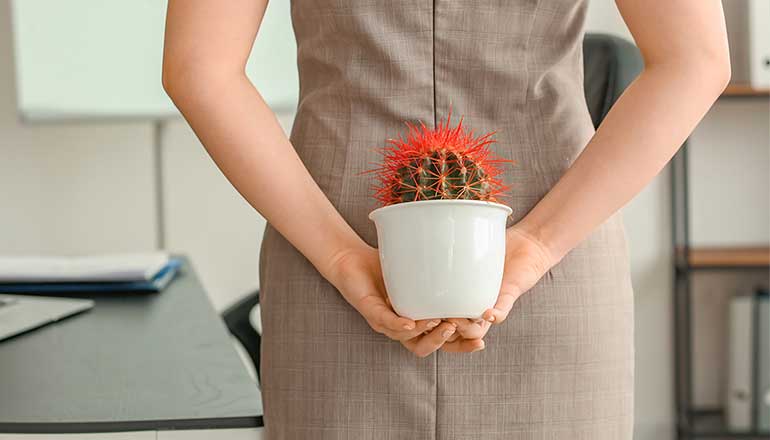Every year, about 1 million people need treatment for piles in India. Piles (also known as hemorrhoids) is more common among people between 45 and 65 years of age. So, what are hemorrhoids? Swollen veins in the lower region of the anus and rectum are known as piles or hemorrhoids. Hemorrhoids can form inside the rectum (internal hemorrhoids) or beneath the skin around the anus (external hemorrhoids).
People who have constipation or have irregular bowel motions are more likely to develop piles. It is considered the commonest anorectal disease, majorly reported in the urban population. Piles can cause considerable pain, bleeding, swelling, and itching in the anus area.
Different Types of Piles
- Internal Piles – They are located deep within the rectum and thus are not visible to the human eye. They may not produce pain, but their presence is indicated by bleeding through the anus.
- External Piles – They originate in the anal’s outer lining, causing considerable discomfort and suffering. They are generally more painful as compared to internal piles.
Symptoms
Some common symptoms of Piles:
- Pain and discomfort in the anal area.
- Discomfort while passing stool.
- Blood in the stool
- Itchiness, redness, and swelling in the anus.
- A painful lump around the anus.
Causes
You should know why piles occur:
- Pregnancy – During pregnancy, rectum tissues weaken, and hormones cause veins to relax and enlarge. Piles affect up to 35% of pregnant women.
- Aging – Piles are more common in persons over the age of 50. However, it can also occur in younger people, even adolescents.
- Diarrhea – Piles can also occur in cases of prolonged diarrhea.
- Chronic Constipation – Straining while passing stools can cause piles.
- Sitting for longer duration – Sedentary work, spending too much time on the toilet seat puts pressure on the rectum and anus leading to blood clotting in the veins.
- Low-fiber diet – Low fiber diet can cause constipation.
- Weight Lifting – Lifting heavy weights repeatedly can cause piles.
- Anal Intercourse – This can cause piles and even aggravate it.
- Weight – Obesity has been linked to an increased risk of piles in studies. When the abdominal pressure increases in the body then piles might occur.
- Genetics – Some people are predisposed to developing hemorrhoids.
Diagnosis
Different methods to diagnose piles are:
- Physical examination – If there is a case of external piles, the anorectal specialist can diagnose it simply by physical examination. If the hemorrhoids are internal, the doctor may examine your rectum and anal canal.
- Digital test: In cases where internal hemorrhoids are too soft to feel, the piles specialist may use a proctoscope, an anoscope, or a sigmoidoscopy to check the lower rectum. The doctor will thoroughly check the lining of your anal tissues using any of these technologies to determine the growth of your piles.
- Self-Diagnosis – If you are familiar with the signs, self-diagnosis of piles is not difficult. Checking your rectal motions might help you determine if you have hemorrhoids. The first and most obvious sign of piles is a hard and uncomfortable lump around your anus. When a person has piles, he or she may have the sensation of an incomplete bowel movement even after passing a stool.In the case of piles, the color of the stool may change visibly, which is yet another approach to self-diagnose piles. If you acquire the condition, the color of your stool may vary from bright red to red. Itching, pain, and redness may occur around the anal area. You may also notice blood in your stool or experience intense discomfort while passing stool.
- Diagnosis by Doctor – The majority of proctologists and ano-rectal surgeons detect piles only by physical examination. When you visit doctor’s clinic, you will most likely be asked the following questions:
- Is there a family history of piles?
- When did you first notice the symptoms?
- Do you pass blood in your feces?
- What are your eating and living habits?
- What is your exercise routine like?
To identify your piles, your doctor may also do a digital rectal examination. A piles specialist may also recommend tests such as colonoscopy, sigmoidoscopy, and anoscopy to rule out any gastrointestinal problems. The doctor puts a small camera into the anus, rectum, and colon during all of these examinations to look for any abnormalities.
If your piles are in their early stages, your doctor may advise you to make certain lifestyle modifications as well as some dietary changes. However, if your evaluation indicates that your disease is severe, you may be advised to have piles surgery.
Severity of Piles
Grade I – The piles are typically located outside the anal lining in small inflammations. They are invisible to the human eye.
Grade II – They are still outside of the anus. They may be pushed out of the anus while passing stool and return.
Grade III – These hemorrhoids have prolapsed and are visible outside of the anus. They protrude from the rectum but can be readily re-inserted.
Grade IV – They stay outside the anus and are difficult to push back. They are the most agonizing.
Management of Piles Without Surgery
Piles treatment can also be done without surgery, depending on severity of the problem.
- Home treatment – It is possible to decrease the mild pain and inflammation of piles with the help of some home remedies.
- Balanced diet that includes high-fiber foods like fruits, vegetables, and whole grains.
- There are ointments that help reduce itching, swelling, and discomfort in the case of external hemorrhoids.
- Gives your anal area a sitz bath in the warm water for at least 10-15 mins and repeat this twice or thrice a day.
- The analgesics or painkillers in case of extreme pain helps relieve it.
Note: Medicines or ointment should be taken only in consultation with a doctor.
Treatment
- Hemorrhoidectomy [Hemorrhoid removal] – Your surgeon eliminates extra tissue that causes bleeding using one of several ways. The Piles surgery procedure can be performed under local anesthetic with sedation, spinal anesthesia, or general anesthesia.
Hemorrhoidectomy is the most comprehensive and successful treatment for severe or recurring hemorrhoids. In rare cases, people may face temporary inability to empty the bladder. This problem is most common following spinal anesthesia.
Most patients experience some pain following the operation, your doctor will prescribe some medicines to alleviate it.
- Hemorrhoid Stapling – Stapled hemorrhoidopexy restricts blood flow to hemorrhoidal tissue. It is usually solely used to treat internal hemorrhoids. Stapling is less painful as compared to hemorrhoidectomy. It also allows the early return to normal activity.
- Laser Surgery – At the moment, laser surgery is thought to be the most effective and convenient approach to cure piles in just three days. Laser surgery is a medical process in which the problematic area is with laser radiation in a precise and focused manner, resolving the problem in a matter of minutes. Within a few hours of the procedure, the patient can go home in a healthy and cognizant state.
The laser treatment for piles is painless, and the chances of the disease recurrence are extremely low.
NOTE: Every procedure has some pros and cons. Your doctor is the best person to decide the best treatment for you.
What If Piles Left Untreated?
The most common complication of piles is strangulation if left untreated for an extended period. When piles become strangulated, blood supply to these tissues is cut off. As a result, the person may develop venous thrombosis within the piles. This may result in significant discomfort and complicate treatment. If the piles are strangulated, the person may have agonizing discomfort within 48-72 hours, which may gradually subside after a week or so.
Anemia is another serious risk that a person faces if he or she does not treat hemorrhoids. Pile formation can result in blood loss as well as stool loss. If the problem is not handled promptly, the person may become anemic, which can lead to a variety of additional health complications.
Preparation for Piles Surgery
Piles surgery is a simple procedure that does not require any preparation. However, like with any other surgery, you must follow the doctor’s recommendations to ensure that your operation goes smoothly and that you recover without issues. Before your piles’ surgery:
- Avoid eating oily food and drinking alcoholic drinks. Take only one light meal, ideally in the morning.
- Drink only clear liquids for at least 5 hours before the procedure, and no carbonated or caffeinated beverages.
- If you’re on anti-inflammatory, allergy, or blood thinner medications, your doctor would advise you to discontinue them for some time before the treatment.
- Stop consuming tobacco and alcohol. It will aid in your recovery following surgery.
Find Piles Doctors Near You
TaCa Healthcare’s mission is to provide high-quality, cost-effective surgical care available to you near your home. We provide low-cost surgery of piles which is done by expert surgeons.
- Dr. D.U. Pathak – Noted ano-rectal surgeon, Jabalpur, MP.
- Dr. Shalabh Agarwal – General and laparoscopic surgeon, in Malviya Nagar, Delhi.
- Dr. Vikas Gupta – Senior general and ano-rectal surgeon, Dwarka, Delhi.
Piles Treatment Near Me
TaCa Healthcare is committed to making high-quality surgery care near your home. We have our expert surgeons and TaCa Centre for Surgery across 10 states. You may choose the facility near your home. For more information, write to us or call us and a TaCa Dost will help you in every possible way.
When To See A Doctor?
Consult your doctor if you experience bleeding after bowel movements.
Prevention
Changes in lifestyle can help reduce the chance of hemorrhoids. These are some examples:
- Healthy Diet – Eating fiber-rich foods such as fruits, vegetables, and whole grains can help keep stools soft. Constipation can also be relieved by taking fiber supplements and staying hydrated.
- Avoid Straining – When using the toilet, one should attempt not to strain. Straining increases pressure on the veins in the lower rectum.
- Stop delay in going to the washroom when needed – It is better to avoid waiting to use the restroom. The longer someone waits, the drier the stools become.
- Regular Exercise – Exercise helps to pass the stool through the gut, resulting in more regular bowel motions.
- Maintaining Body Weight – Obesity increases the likelihood of hemorrhoids.
Recovery Process after Piles Surgery
The recovery process following piles surgery is usually quick with no severe complications. There will be no issues if you attentively follow the doctor’s suggestions and tips.
- Consume a high-fiber diet.
- Lifting heavy weights should be avoided.
- Use Laxatives to help you have smooth bowel movements.
- Keep hydrated. Drink at least 8-10 glasses of water everyday.
- Do not put extra strain while passing a stool.






